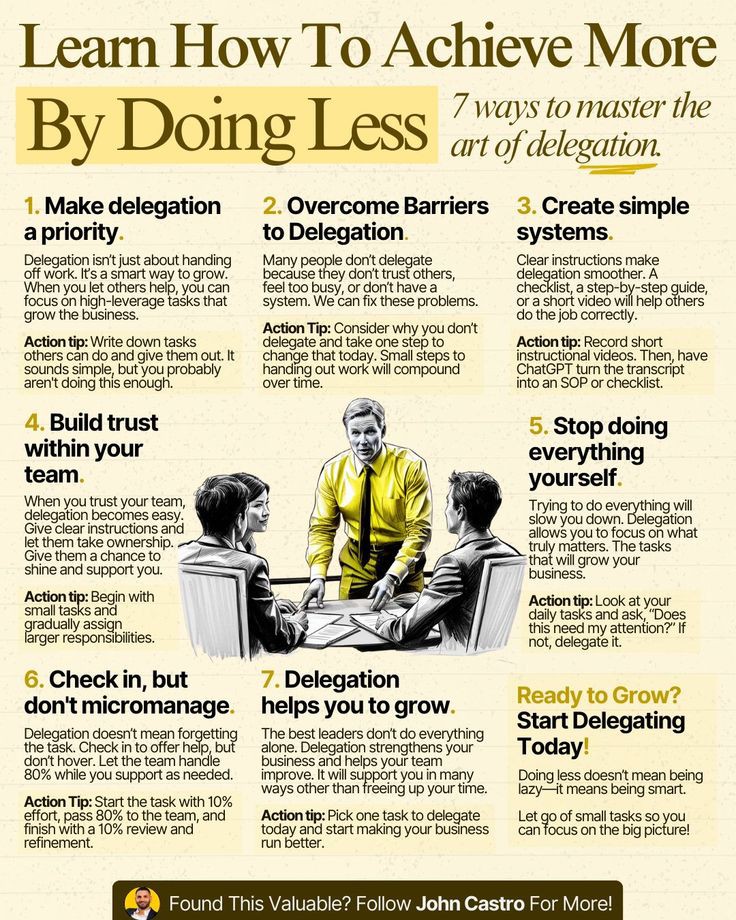
Mastering the art of delegation is essential for anyone looking to enhance productivity and achieve more while managing their time effectively.

Delegation allows you to distribute tasks among team members or colleagues, freeing up your time for more strategic responsibilities.

Here are eight ways to master the art of delegation:

1. Identify Tasks to Delegate: Start by assessing your workload and identifying tasks that can be delegated. Look for repetitive tasks, those that require less expertise, or activities that others can handle effectively. By recognizing what can be passed on, you can focus on high-priority projects that require your unique skills.

2. Choose the Right People: Delegation is not just about offloading tasks; it’s about selecting the right individuals for the job. Consider the strengths, skills, and interests of your team members. Assign tasks based on their competencies and potential for growth. This not only enhances the quality of work but also empowers your team.

3. Provide Clear Instructions: When delegating, clarity is key. Clearly outline the task, its objectives, and any specific requirements. Providing context and expectations helps prevent misunderstandings and sets your team members up for success. Be available for questions, and encourage open communication.

4. Trust Your Team: Once you delegate a task, trust your team to execute it. Micromanaging can undermine confidence and stifle creativity. Allow them the freedom to approach the task in their own way, fostering a sense of ownership. Trusting your team also builds their confidence and encourages them to take initiative.

5. Set Deadlines: Establishing deadlines is crucial for effective delegation. It creates a sense of urgency and helps prioritize tasks. Ensure that the deadlines are realistic and take into account the team member’s workload. This approach not only keeps projects on track but also helps in managing expectations.

6. Monitor Progress: While it’s important to step back, keeping an eye on progress is equally vital. Regular check-ins can help you gauge how the task is progressing and address any challenges early on. This doesn’t mean hovering over your team; rather, it’s about being supportive and providing guidance when necessary.

7. Provide Feedback: Constructive feedback is essential for growth. After the completion of a delegated task, take the time to review the work and provide feedback. Acknowledge successes and discuss areas for improvement. This not only helps the individual learn but also strengthens the overall team dynamic.

8. Reflect and Adjust: After delegating tasks, reflect on the outcomes. Assess what worked well and what didn’t. This analysis will help you refine your delegation skills over time.

Consider gathering feedback from your team about the delegation process, as their insights can provide valuable perspectives for future tasks.

In conclusion, mastering the art of delegation is a powerful strategy for achieving more by doing less. By identifying tasks to delegate, choosing the right people, providing clear instructions, and trusting your team, you can create a more efficient workflow. Setting deadlines, monitoring progress, and providing feedback further enhance the delegation process.

Finally, taking the time to reflect and adjust will ensure continuous improvement in your delegation skills. As you embrace delegation, you’ll find yourself with more time to focus on strategic initiatives, ultimately leading to greater success for both you and your team.






Leave a Reply